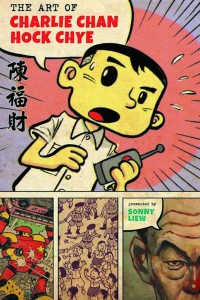 Two years ago on the eve of publication for Sonny Liew’s tour de force graphic history of Singapore, The Art of Charlie Chan Hock Chye, the city-state’s National Arts Council suddenly got cold feet and revoked a promised grant due to the book’s “sensitive content.” That didn’t stop it from selling out in Singapore (in fact it probably helped!) or going on to be an international success with numerous awards and nominations. Now a new profile in the New York Times shows how the book has had a marked impact on Singaporeans’ view of their own history.
Two years ago on the eve of publication for Sonny Liew’s tour de force graphic history of Singapore, The Art of Charlie Chan Hock Chye, the city-state’s National Arts Council suddenly got cold feet and revoked a promised grant due to the book’s “sensitive content.” That didn’t stop it from selling out in Singapore (in fact it probably helped!) or going on to be an international success with numerous awards and nominations. Now a new profile in the New York Times shows how the book has had a marked impact on Singaporeans’ view of their own history.
The official government narrative of the city-state’s separation from Britain and then from fellow colony Malaysia is commonly referred to as “The Singapore Story.” A key point in this “upbeat tale of success” is that suppression of left-wing dissidents in the early days of independence was necessary to prevent Singapore from falling under Communist rule like other countries in Asia.
The Art of Charlie Chan Hock Chye subtly challenges that received wisdom in part by rehabilitating Lim Chin Siong, a union leader “whose spellbinding speeches helped convince many Singaporeans that they could become independent from Britain” but who was jailed and silenced under the government of founding Premier Lee Kuan Yew. Liew says he intended for the book to “offer a more inclusive vision of Singapore’s history, one that encourages readers to look at all narratives with a critical eye.”
Two years later, there is evidence that his effort is making inroads. Despite the grant revocation, Liew is not even close to being blacklisted by the authorities: he works in a government-subsidized studio space, participates in government-sponsored literary festivals, and won a Singapore Literature Prize. Perhaps most gratifyingly, he recently heard of a public high school teacher who has made the book mandatory reading in her class.
Incidentally, The Art of Charlie Chan Hock Chye is nominated for a whopping six Eisner Awards, with the winners to be announced tonight. Any award Liew adds to his ever-growing list is well deserved, but even more lasting is the impact that he and other questioners of the official narrative have already made on the way that Singaporeans view their own history.
Help support CBLDF’s important First Amendment work in 2017 by visiting the Rewards Zone, making a donation, or becoming a member of CBLDF!
Contributing Editor Maren Williams is a reference librarian who enjoys free speech and rescue dogs.